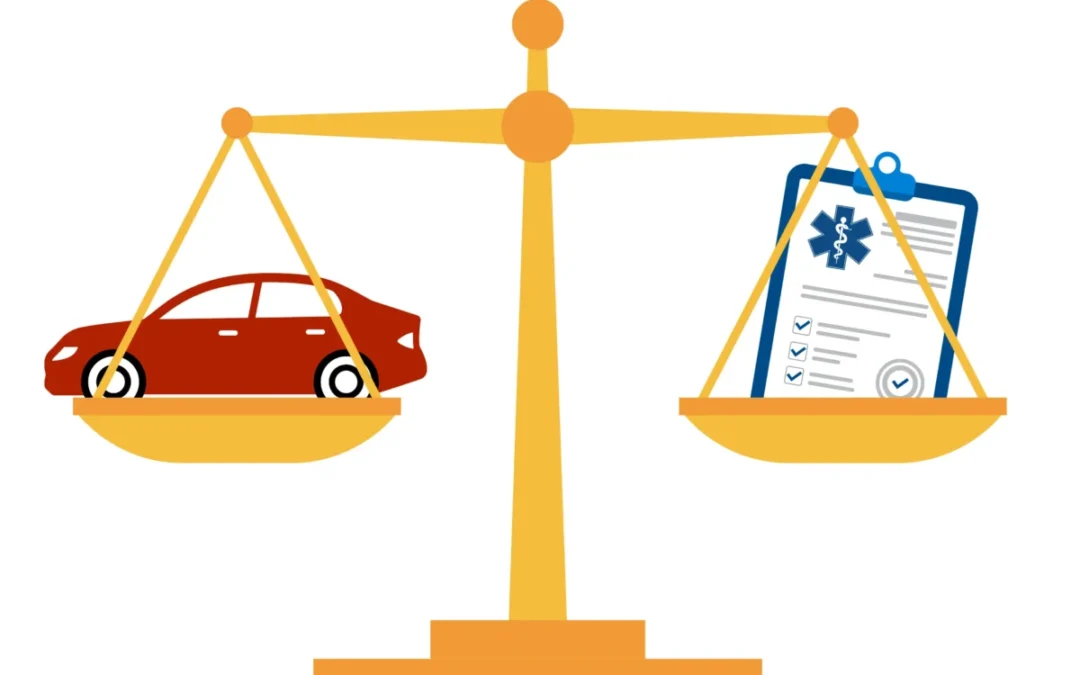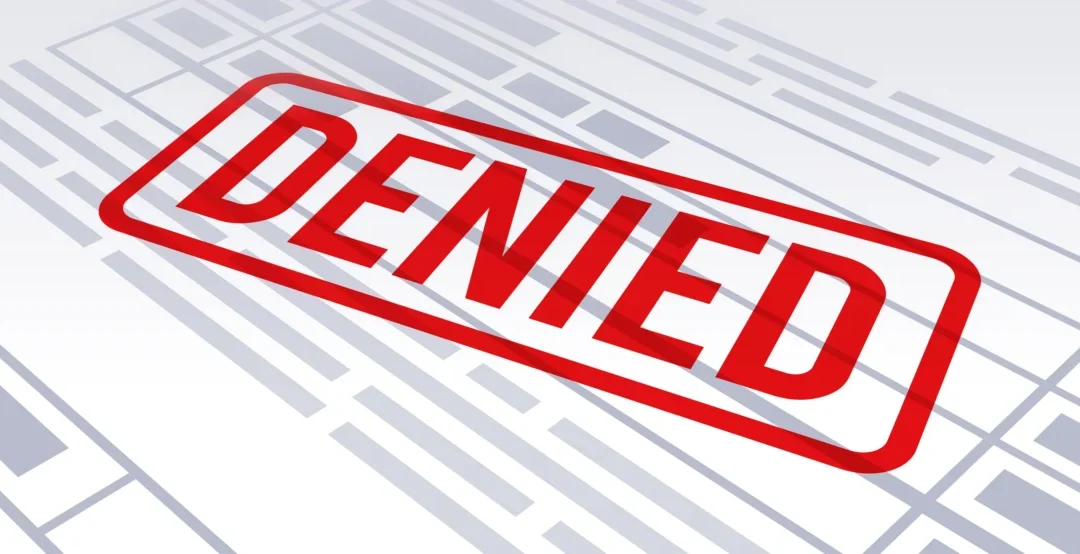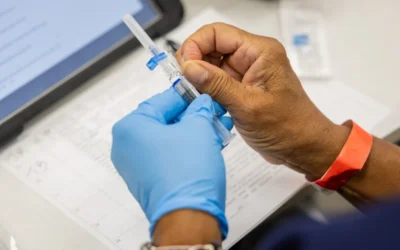
#image_title
Pharmaceutical companies make billions of dollars selling overpriced products developed with taxpayer dollars, but they’re still able to dodge tax payments. It’s time for Congress to fix this broken system.
Love them or hate them, taxes are something most Americans pay their fair share of into the government’s coffers as a basic duty. In return, we get roads, schools, health services, clean air and water, and other public goods and services that benefit everyone. But for too long, the rules that apply to most of us have been shirked by the richest households and corporations—those who can afford to pay their fair share, but—thanks to loopholes, lobbying, and preferential treatment—seldom do.
This was seen most recently in Kristin Brey’s video for UpNorthNews explaining how the state’s Manufacturing and Agriculture Tax Credit has morphed into a massive corporate giveaway that starves our state of the ability to fund vital services, even as the so-called credit requires absolutely no proof of Wisconsin job creation.
At the national level, dozens of Fortune 500 corporations manage to avoid taxes each year thanks to a web of corporate tax loopholes designed to help Wall Street hold on to as much profit as possible. Further, the 2017 overhaul of federal tax law, the signature achievement of former President Donald Trump, slashed corporate taxes, gave massive windfalls to corporations that move profits and jobs offshore, and led to the lowest corporate tax rates in 30 years.
It has only gotten worse in the pandemic as corporations like Zoom Video Communications profiteered while giving nothing back in taxes even as millions lost jobs and health care because of COVID. Zoom’s pre-tax profits increased by 4,000% last year, from $16 million in 2019 to $660 million in 2020, but the company paid no federal corporate income tax on those profits.
Low corporate tax rates are just the tip of the iceberg, though, when it comes to tax giveaways for some corporations. Prescription drug companies, for instance, also get a steady stream of tax money to fuel their business model, including significant funding through the National Institutes for Health (NIH) for research and development of new medicines. On the COVID vaccine alone, companies like Moderna, Pfizer, and Johnson & Johnson received over $16 billion to speed up research and manufacturing of vaccines and therapeutics. That vaccine is now projected to make billions for the corporations thanks to our investment.
Public funding of drug development is by no means unique to COVID vaccines. Most medicines developed and approved in the United States involve taxpayer investment. Between 2010 and 2019, every new medicine approved by the Food and Drug Administration included taxpayer-funded research through NIH. Drug companies patent the drugs we pay to develop and then charge us exorbitant prices for them that increase every year, sometimes twice a year.
RELATED: Republican Politicians Fighting Biden’s Plan, but Republican Voters in WI Like Some of ‘Em
As the Health Care For All Co-Op organizer at Citizen Action of Wisconsin, I hear the stories of Wisconsinites who suffer from the high cost of prescription drugs. These stories are everywhere, in every community. High drug prices do not discriminate based on where we live, what we look like, or how much money we have. They affect people like Tony in Green Bay who had to ration insulin when between jobs, Zena in Twin Lakes whose medicines cost over $5,000 a month, and Lynn in Germantown whose anti-transplant rejection prescriptions would cost $20,000 each month were it not for Medicare.
Drug companies also get tax breaks for marketing medicines to us, a key strategy for driving demand for the products. There are only two countries on Earth that market prescription medicine directly to consumers—the United States and New Zealand. American taxpayers also reward the drug corporations with annual tax breaks on the billions of dollars spent on the commercials we are forced to watch.
What do we get for all these tax contributions and giveaways to Pharma? Up until now, mostly we have gotten higher drug prices, even on medicines that have been around for a long while like insulin and EpiPens. Although the drug corporations promised they would use their massive tax cuts under the Trump law to lower prices and support jobs, the biggest corporations mostly spent them on stock buybacks and increased executive salaries. Meanwhile, nationally, a third of patients skip doses because they cannot afford the price of prescriptions. In Wisconsin, a statewide survey put out by The Healthcare Value Hub in partnership with Citizen Action found that over half of Wisconsinites are worried about the price of prescription drugs and that 18% of folks in the state did not fill a prescription because of cost, while 15% skipped or rationed doses.
The time has come to fix this broken system. No one should have to choose between food and medicine, rack up debt to afford prescriptions, or go without insulin or blood pressure pills because they cannot afford the drugs’ prices. We need our government to negotiate lower drug prices on behalf of all Americans now. Congress should also stop making taxpayers pay over and over again to support price-gouging: We pay for research, we pay at the pharmacy, and we pay for tax breaks for the drug corporations.
We should not be thinking about taxes only on the days we fill out our 1040s. We should be putting pressure on our representatives year-round to make our tax bills fairer. Congress should make the drug corporations pay their fair share of taxes—eliminate loopholes that allow industry to dodge taxes, and stop rewarding these corporations for jacking up prices, aggressive marketing, and offshoring their profits.
From federal breaks to state loopholes (and even the Foxconn boondoggle) Wisconsin taxpayers are getting mistreated like never before. While we typically fight for the health of Wisconsin families, it is clear that the health of our tax code could be a lot better, as well.

October is Breast Cancer Awareness Month. Here’s how you can help in Wisconsin
It's Breast Cancer Awareness Month. Here's how you can help fight for a cure throughout Wisconsin. October is globally recognized as Breast Cancer...

A new car vs. health insurance? Average family job-based coverage hits $27K
By Phil Galewitz, KFF Health News With the federal shutdown entering its fourth week, spurred by a stalemate over the cost of health insurance for...

WI residents could be missing out on dual-plan health benefits
By Judith Ruiz-Branch Fall open enrollment starts Wednesday for Wisconsinites who are dual eligible for both Medicaid and Medicare, and...

Fighting a health insurance denial? Here are 7 tips to help
By: Lauren Sausser When Sally Nix found out that her health insurance company wouldn’t pay for an expensive, doctor-recommended treatment to ease...




